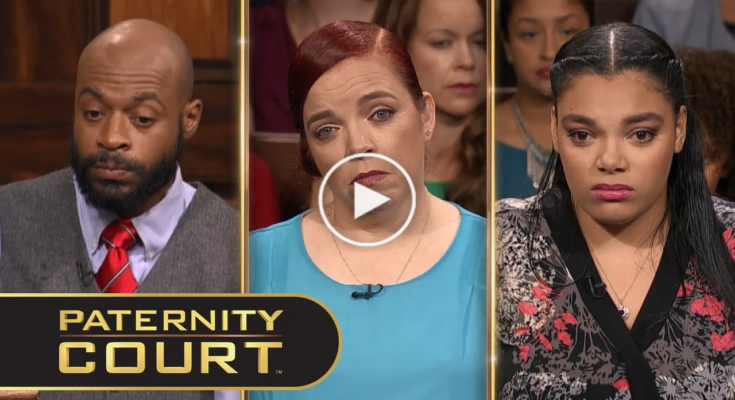Ms. Bouman has brought her daughter, Kalena, to court to prove that her biological father is Mr. James Stewart. Kalena, however, does not believe her mother’s claim and Mr. Stewart’s family wants to clear his name. Ms. Bouman explains, “I have lied to my daughter over the years, telling her that another man, Mr. Watson, was her father.” Her words reveal her regret and the uncertainty surrounding the paternity of Kalena. The conversation explores the importance of the paternity test results for Ms. Bouman and her strained relationship with her daughter.
Ms. Bouman admits to having a close relationship with Mr. Stewart, which eventually became sexual. However, she found out that there was someone else involved and decided to end the relationship and find a new job. She then discovered she was pregnant and told Mr. Watson, who initially didn’t care. Her admission and the subsequent actions reveal a complex web of relationships and decisions that have led to the current dispute.
Kalena expresses her confusion and hurt over the situation. She was taken from her mother’s house by Mr. Watson and was unable to contact her for two months. When she was finally able to go back, her mother told her that Mr. Watson might not be her father and they were going to court to find out. She was confused because she had been told for years that Mr. Watson was her father. When the test results came back, it was revealed that Mr. Watson was not her father, which hurt Kalena. She stopped talking to her mother for a month and a half. Kalena’s words and actions reveal the emotional toll that the situation has taken on her.
The conversation also includes Lillian, who is James’ mother. Lillian reveals, “I received a letter in my mailbox stating that James Stewart was not the father.” The judge reads the letter, which states that James Stewart is not the biological father of Lillian’s child. Lillian admits to putting the letter in Ms. Watson’s mailbox. In court, Angela admits, “I fabricated a letter claiming that Kalena was the daughter of Mr. Watson because I was in love with him and wanted to hold onto him.” These revelations add another layer of complexity to the case, revealing a web of lies and manipulations that have contributed to the current dispute.
The climax of the episode arrives when the results of a DNA test are revealed, showing that the deceased, James Stewart, is indeed the biological father of Kalena. Lillian, who is emotional, expresses her concern for the child’s well-being and emphasizes that Ernest will always be her father. The judge questions Angela about her actions and she admits to doing it out of love for Mr. Watson. The judge concludes by stating, “Using a child to keep a man never works.”
The episode’s popularity also speaks to the appeal of the Paternity Court show itself. The show’s format, which combines elements of courtroom drama with real-life stories, offers a unique viewing experience. It provides viewers with a glimpse into the personal lives of the individuals involved, while also educating them about the legal aspects of paternity disputes.
In conclusion, this episode of Paternity Court offers a compelling exploration of a complex paternity case. It delves into the personal stories of Ms. Bouman and Kalena, the emotional turmoil they experience, and the quest for truth in the face of conflicting narratives. The episode also highlights the role of the legal system in resolving such disputes and the importance of parental responsibility. Through its exploration of these themes, the episode contributes to broader conversations about family, justice, and the welfare of children.
The episode ends on a note of resolution, with the revelation that James Stewart is indeed the biological father bringing a sense of closure to the case. However, it also marks the beginning of a new journey for Ms. Bouman, Kalena, and their family. Despite the difficult circumstances, the characters express a desire to move forward and do what is best for their child. This sentiment, along with the judge’s emphasis on responsibility and learning from one’s mistakes, provides a hopeful message for the audience. The episode serves as a reminder of the complexities of human relationships and the importance of truth and responsibility in navigating these complexities.



